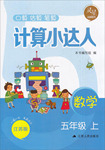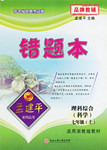题目内容
?
K.L. Rothey, 71, from the United States, a retired lawyer ?
Rothey has given himself the Chinese name of Luqi or “roadside beggar(乞丐)”. In his eyes, beggars are doing important work collecting rubbish. What they do is not dirty. Littering the street is, he adds.?
Rothey first visited China in 1984 and soon he became interested in Chinese culture. Married to a Chinese calligrapher (书法家), he lived in Huangshi, Hubei Province.?
Many people know him because he often shows up in the street collecting rubbish. “Huangshi is my home so I hope it becomes cleaner and more beautiful,” says Rothey. He has also organized volunteers to collect rubbish in other cities, including Wuhan.?
Rothey says he’ll continue collecting rubbish, as long as he is able to.?
Jill Robinson, 50, from Britain, founder(创立者)and CEO of Animals Asia Foundation.
She has been working for nearly 20 years to stop people from getting the bile(胆汁)from moon bears for use in traditional medicine.?
She began working for the International Fund for Animal Welfare in Hong Kong in the mid-1980s. A business trip to a bear farm in the mainland in 1993 changed her life. She saw so many moon bears killed by people. That made her cry. She said she would be back to set them free.?
In 1998, she set up the Animal Foundation. In July 2000, the foundation agreed to free 500 farmed moon bears. In 2002, the Moon Bear Rescue(救援)Center was set up in Chengdu, capital of Sichuan.?
Now, bear farms have been stopped in the area of two-thirds of China. “As much as we rescue them, they rescue us. These bears rescue us every single day and they teach us to be better people,” Robinson says.?
任务:请阅读上面短文,根据短文内容完成下面表格中的有关信息。?
K.L. Rothey, 71, from the United States, a retired lawyer ?
Rothey has given himself the Chinese name of Luqi or “roadside beggar(乞丐)”. In his eyes, beggars are doing important work collecting rubbish. What they do is not dirty. Littering the street is, he adds.?
Rothey first visited China in 1984 and soon he became interested in Chinese culture. Married to a Chinese calligrapher (书法家), he lived in Huangshi, Hubei Province.?
Many people know him because he often shows up in the street collecting rubbish. “Huangshi is my home so I hope it becomes cleaner and more beautiful,” says Rothey. He has also organized volunteers to collect rubbish in other cities, including Wuhan.?
Rothey says he’ll continue collecting rubbish, as long as he is able to.?
Jill Robinson, 50, from Britain, founder(创立者)and CEO of Animals Asia Foundation.
She has been working for nearly 20 years to stop people from getting the bile(胆汁)from moon bears for use in traditional medicine.?
She began working for the International Fund for Animal Welfare in Hong Kong in the mid-1980s. A business trip to a bear farm in the mainland in 1993 changed her life. She saw so many moon bears killed by people. That made her cry. She said she would be back to set them free.?
In 1998, she set up the Animal Foundation. In July 2000, the foundation agreed to free 500 farmed moon bears. In 2002, the Moon Bear Rescue(救援)Center was set up in Chengdu, capital of Sichuan.?
Now, bear farms have been stopped in the area of two-thirds of China. “As much as we rescue them, they rescue us. These bears rescue us every single day and they teach us to be better people,” Robinson says.?
任务:请阅读上面短文,根据短文内容完成下面表格中的有关信息。?
| Name | K.L.Rothey | Jill Robinson |
| Nationality | 77. | British |
| Age | 71 | 50 |
| Events | He first visited China in 1984 and became interested in Chinese culture.? He often 78. in the streets in Huangshi.? He has also organized volunteers to collect rubbish in other cities. | She began working for the International Fund for Animal Welfare in the mid-1980s. ?79. in the mainland changed her life in 1993.? She set up the Animal Foundation in 1998. In 2002, the Moon Bear Rescue Center was set up in Chengdu, capital of Sichuan. |
| The two passages are about two foreigners who have helped improve Chinese lives with their contributions(贡献).We should 80. them and do what we can to protect the environment. | ||
小题1: American
小题1:collects rubbish / shows up collecting rubbish
小题1: A business trip to a bear farm
小题1: learn from
略

练习册系列答案
 灵星计算小达人系列答案
灵星计算小达人系列答案 孟建平错题本系列答案
孟建平错题本系列答案
相关题目